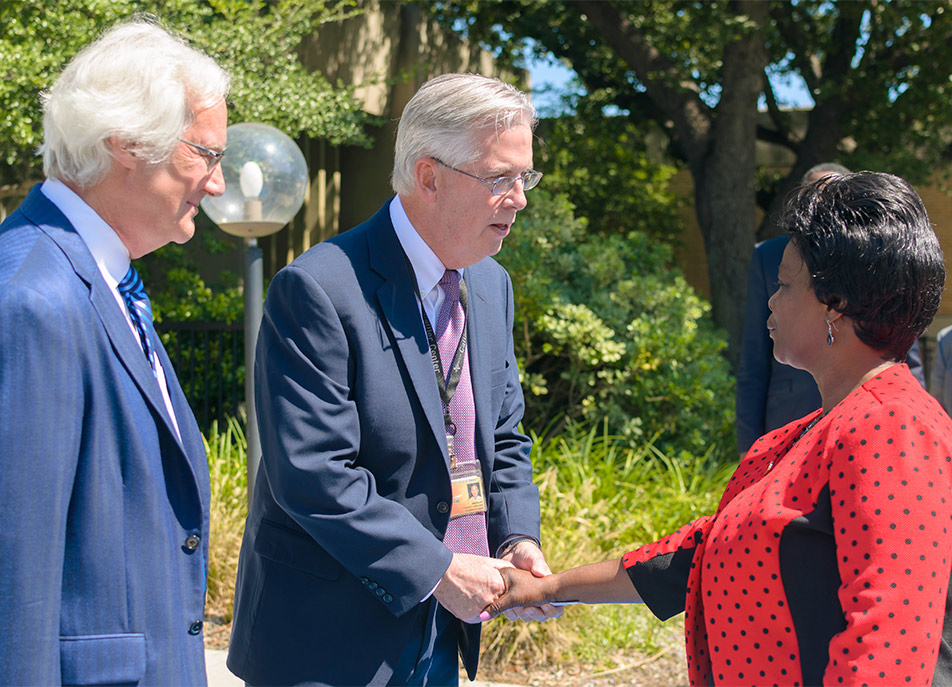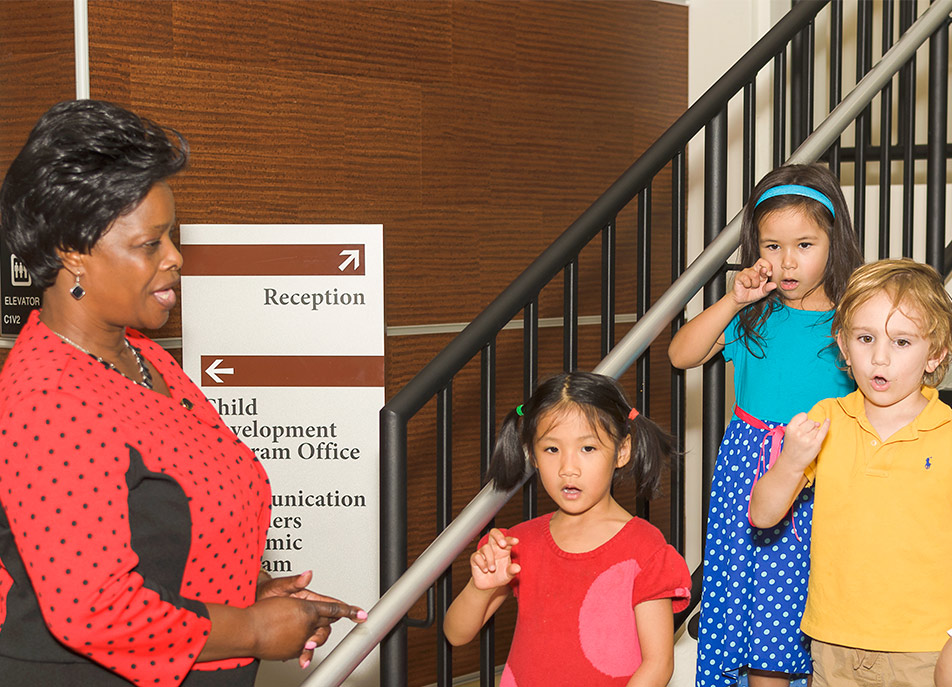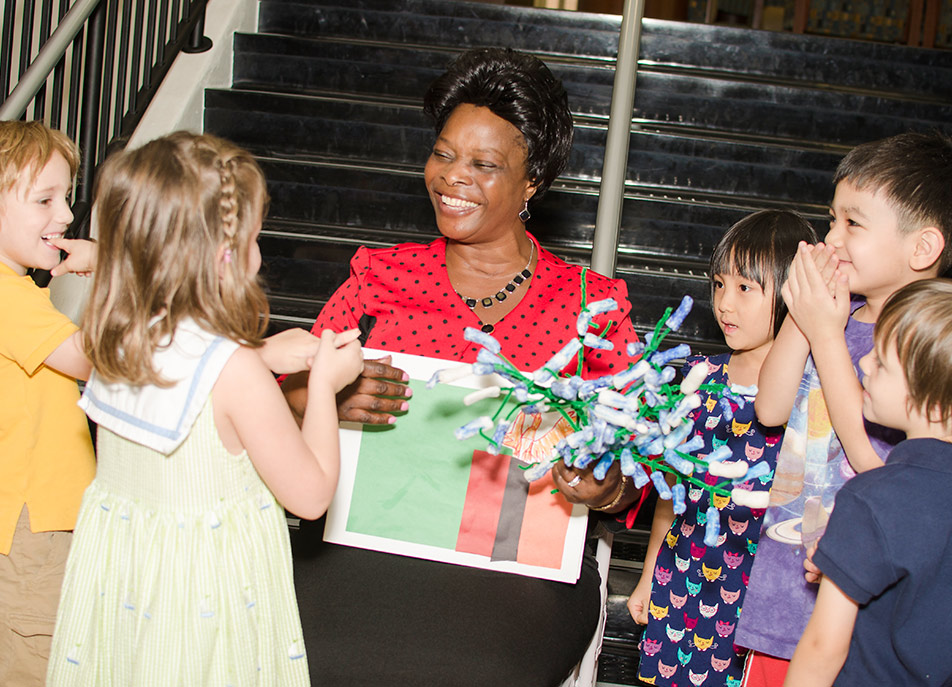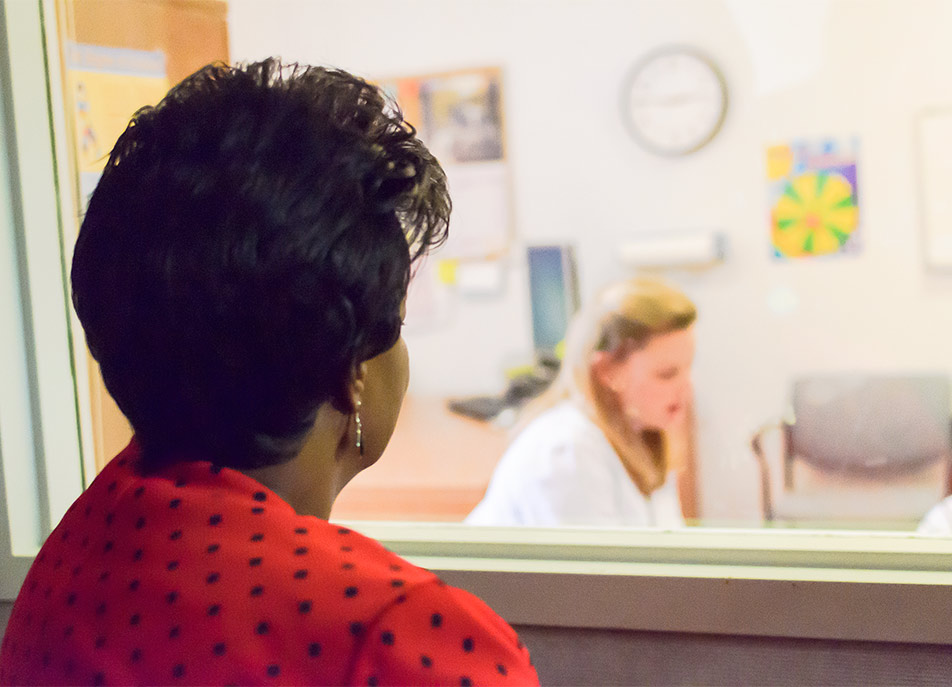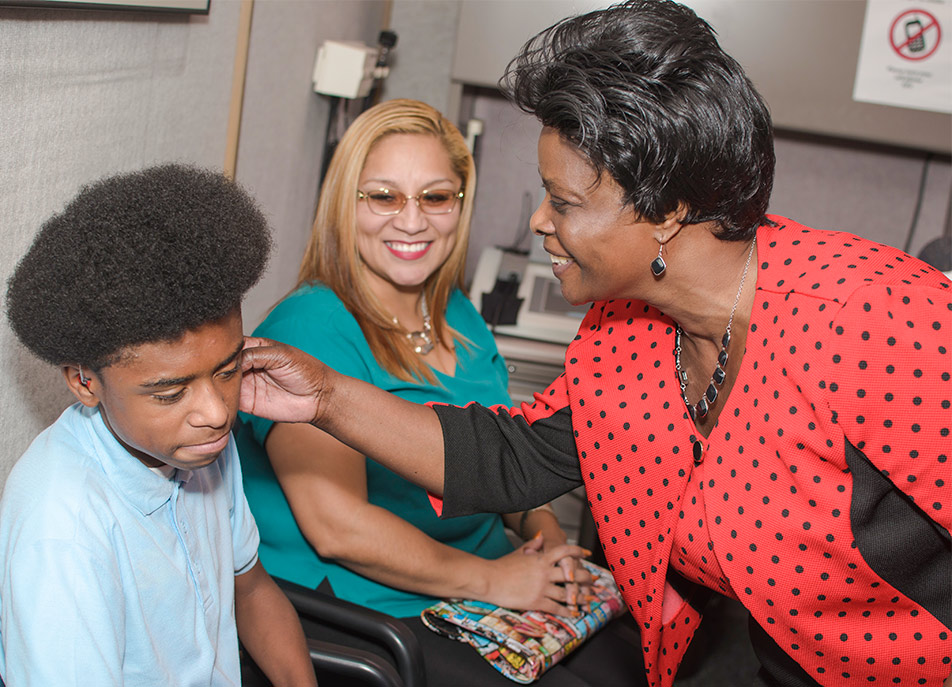Esther Lungu, the first lady of Zambia, recently visited the Callier Center for Communication Disorders as part of a trip to the United States, saying she would like to utilize knowledge from Callier to help the people of her country.
Lungu was in Dallas participating in an event at the George W. Bush Institute that brought in a number of first ladies from around the world for the center’s Global Women’s Initiative summit. She often visits facilities that help children when she travels and chose to visit the Callier Center while in the area.
“I have a passion for the disabled: hearing impairments, visual impairments and physical impairments,” Lungu said.
Children from the Callier Child Development Program greeted Lungu in the front lobby with singing and sign language, handmade Texas “bluebonnets” and a signed card.
Lungu spent most of her time visiting with patients who were being treated for speech or hearing disorders, with audiologists and speech-language pathologists who were working with those patients, and with UT Dallas students.
“It was very clear that Mrs. Lungu is very committed to the well-being of Zambians. She indicated a deep desire to make sure all Zambians with disabilities are fairly served.”
Dr. Jackie Clark,
clinical professor at the School of Behavioral and Brain Sciences
From an observation room, the first lady watched speech-language pathologist Kelly Wilson work with a young patient in an individual speech therapy session. Using both literacy-based intervention and informal play, the therapist was able to address multiple language goals during the session.
In one treatment room, Lungu talked with a hearing impaired patient who also has Down syndrome. In another area, she saw Dr. Ken Pugh, an audiologist, treat a young patient who has hearing impairment in both ears. The patient’s mother explained to Lungu the process of obtaining hearing aids at the Callier Center. Lungu and her staff engaged Pugh and the family in a discussion on the latest in hearing aid technology, including how Bluetooth can be used to connect hearing aids with cellphones — which is increasingly common among teenagers.
“The first lady was quite engaged in the conversation,” Pugh said. “She talked with the mother and the son, and was particularly interested in learning more about the hearing aid.”
Dr. Jackie Clark, clinical professor at the School of Behavioral and Brain Sciences, each year leads students on trips to Africa to provide audiology services, such as hearing screenings, fitting hearing aids, and training local personnel in ear and hearing care practices. Recently, she spearheaded a “teleaudiology program” in which rural Zambians can have their hearing checked remotely, without a doctor having to be present.
During Lungu’s visit, she and Clark talked about that program as well as other ways that Zambia can provide more assistance to the country’s audiologist, Dr. Alfred Mwamba, so that hearing services for its citizens can be improved and increased.
“It was very clear that Mrs. Lungu is very committed to the well-being of Zambians. She indicated a deep desire to make sure all Zambians with disabilities are fairly served,” Clark said.
Dr. Thomas Campbell, Ludwig A. Michael, MD Executive Director of the Callier Center and Sara T. Martineau Professor, said visits such as Lungu’s are good for everyone.
“It was wonderful having the first lady visit Callier. Any time we can host a high-level leader from another country to talk about our University, our school and our center, it’s a positive thing for the University and for our students,” he said.
Lungu said she was grateful for the Callier tour and the knowledge she gained about speech and audiology.
“This has been tremendous. When I go back home, I want to impart the knowledge I have acquired here with others — starting with the president himself — so that Zambians in these situations (can be helped),” Lungu said. “I will talk to doctors in Zambia to see how we can tap into your knowledge and technology, and take it back to Zambia.”
